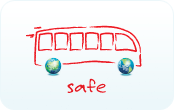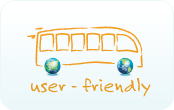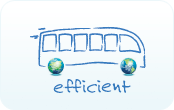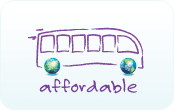|
Legislative and infrastructural constraints
Long distance coach travel in France is experiencing very little growth due to a regulatory framework that imposes numerous commercial, practical and judicial constraints. Coach operators need advanced authorisation – often long and complex – and 40% of requests to open new service lines are refused by the State without real justifications.
Moreover, cabotage is not really helping as currently, inland connections in the same region are prohibited. The result is that a coach cannot provide a trip from Montpellier to Perpignan (Languedoc Roussillon region), nor from Bordeaux to Pau (Aquitaine region). The only solution for coach operators seeking to connect two French cities in the same region is if the vehicle crosses the French border into a neighbouring country and makes several stops between departure and destination. “This law is completely delusional. It means that you can take a coach from Paris to Bordeaux, but only if that coach is travelling from Paris to Madrid”, commented Dominique Bussereau.
This prohibits coach travel to many destinations, because in reality, how is it possible to add a connection between Caen and Brest through an international itinerary? And even in that case, cabotage cannot account for more than half of a coach company’s business, so it means having to refuse service to passengers, even if coaches have empty seats available.
“Coach lines from our childhood have disappeared and need to be redeveloped, as well as connections with the existing TER network”, stressed the Former French Secretary of State who advocates for larger liberalisation in the sector. “I think we are headed towards more competition in regions. Everything is starting to move and French citizens will once again see coaches as a real travel alternative.”
Green mobility to create more jobs
Some would argue that it is an environmental debate, but even there, the Competition Authority is against the idea that trains are greener than coaches, citing that 37% of interregional rail lines transport less than 12 passengers a day. “A Micheline Diesel train that operates half empty is more hazardous to the environment than a coach travelling at full capacity. You need to look at the emissions per transported passenger”, said Bruno Lasserre.
The Competition Authority considers it urgent to eliminate all constraints in order to allow coach travel to respond to current demand. “It would naturally stimulate growth and create anywhere between 10,000 and 16,000 jobs from now to 2020, an easy next step considering the benefits already offered by the French market”, concluded Mr Lasserre.
Read more from Le Figaro and RTL
|














